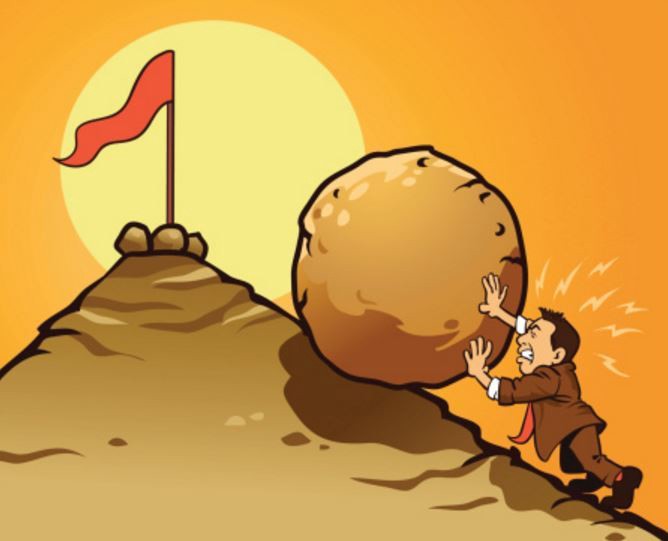When initiating contact in the context of networking, it can be tempting to be vague as a form of self-protection. If we’re general about what we want, or don’t know exactly what we want, potential rejection might sting less. Right?
Heidi Grant offers a better, clearer way in her new book Reinforcements: How to Get People to Help You. Grant, a social psychologist at the NeuroLeadership Institute and the Motivation Science Center at Columbia Business School, has also written Nine Things Successful People Do Differently and other best-selling books.
With an accessible tone backed by research on social intelligence, Grant shares techniques to help askers get what they need while setting up givers for success. While her win-win tactics make life easier in increasingly collaborative workplaces, they also apply to personal relationships. Wherever cooperation is at stake, it helps to have Reinforcements. Grant explains how to get there.
In initiating contact with a stranger or acquaintance, why should we be wary of asking to “connect”?
Read Also: Leaders, Does Your Team Want You to Be Humble?
If you begin an exchange by asking to connect, chat or buy me coffee, I don’t know what you want. No one wants to have their brain picked—even that phrasing sounds predatory.
Often when we ask for help, we’re thinking about how painful it is to ask. We don’t realize how much people get out of helping, as long as you don’t make it weird.
—Heidi Grant, author, Reinforcements: How to Get People to Help You
You’re basically saying, “Come put yourself in a position where I can ask you something that could make you really uncomfortable.” It puts people on guard. In Reinforcements, I emphasize how uncomfortable it is for people to say “no.” That’s not something we often take into account when making a request.
What language does work?
The chances of getting the meeting or support you want are vastly better if you come out with what you want: I’d love to connect because I want to ask you about X, Y and Z. I hope to share X with you to get your feedback or see if you’re interested.
Everyone has an agenda. When you get specific and explicit, people are no longer threatened, and you’re more likely to get help. Set them up for success around exactly what you want.
In part two of the book, I love this chapter title: “Don’t Make It Weird.” Can you expand on that?
Often when we ask for help, we’re thinking about how painful it is to ask. We don’t realize how much people get out of helping, as long as you don’t make it weird.
Giving is one of the most potent sources of self-esteem. It offers what psychologists call a strong sense of “in-group,” or belonging.
When we apologize excessively or offer a quid pro quo condition—If you do this for me, I’ll do something in return—we kill the joy of giving.
Allies are especially important for entrepreneurs. Any advice for cultivating a supportive network?
If you’re not getting the help you want, it’s probably your fault. That may sound harsh, but chances are, your need is not explicit. If it is apparent that you need help, is it totally clear that you want it?
There’s a lot of guidance out there on how to build a network, but not so much about tapping into it. That’s where this book comes in. You can have the most vast network in the world, but if you can’t get support from it, it’s not much good.
Read aslo: 6 NEGOTIATION STRATEGIES THAT CAN HELP GET TO YES FAST
What’s a common mistake that people make in asking for help?
Making a request via email that could be made over the phone or in-person. Although email might feel more comfortable, more personal requests have better outcomes. The group email is especially ineffective. If you ask ten people at once, you basically just guaranteed that no one helps. People don’t want to feel diffused responsibility. They want to give unique, or non-substitutable, help.
How might the head of a growing team ask for recruiting help?
Again, be super clear about what you need. I’ve gotten this type of request before: “Do you know anyone in sales?” There are lots of types of salespeople, right? Without a clear ask, people don’t feel like they can give you the right help.
Inertia is what you’re fighting most. If it’s easier for me to not help, then that’s what I’ll do. I don’t want to give the wrong help or ineffective help. What really matters in the position you’re looking to fill? What doesn’t matter? The more context you share, the better help you’ll get.
How else might you strengthen that kind of request?
Prime the people you ask by lifting up their identity: “I know how well-connected you are. Could you please take some time to think through your network for me?” Give them an opportunity to feel that boost of self-esteem.
You can also strengthen your in-group connection, or shared identity, by pointing out that you’re in the same boat: “I know you’ve been in these shoes and know how difficult staffing can be.”
Don’t overdo it, because that can be weird, but a subtle motivating cue can frame the request.
Read Also: 3 Biases That Hijack Performance Reviews, and How to Address Them
What advice do you have for entrepreneurs looking to raise money from friends or family?
Make your appeal personal. Don’t make it an exchange or a transaction. Don’t offer to do something in return. The minute you do that, you’ve reduced it to something that could happen between strangers, undermining the relationship.
The research shows that people who are unable to help you the first time around are more likely to help the second time you ask. They jump at the chance to repair the relationship and strengthen it going forward.
What’s the best way to follow up on a successful request?
Whenever possible, it’s so important to let givers know the difference their help made. As a professor, students ask me for letters of recommendation every fall. A tiny fraction bothers to let me know how things turned out, or what’s next. When they do, I feel great about the small role I played in their victory.
Very rarely in life are there truly win-wins, and that’s what’s so great about this research. When helping strengthens a relationship, we’re more likely to help each other again and again.
Author: Cara Cannella
Writer & Editor, caracannella.com









